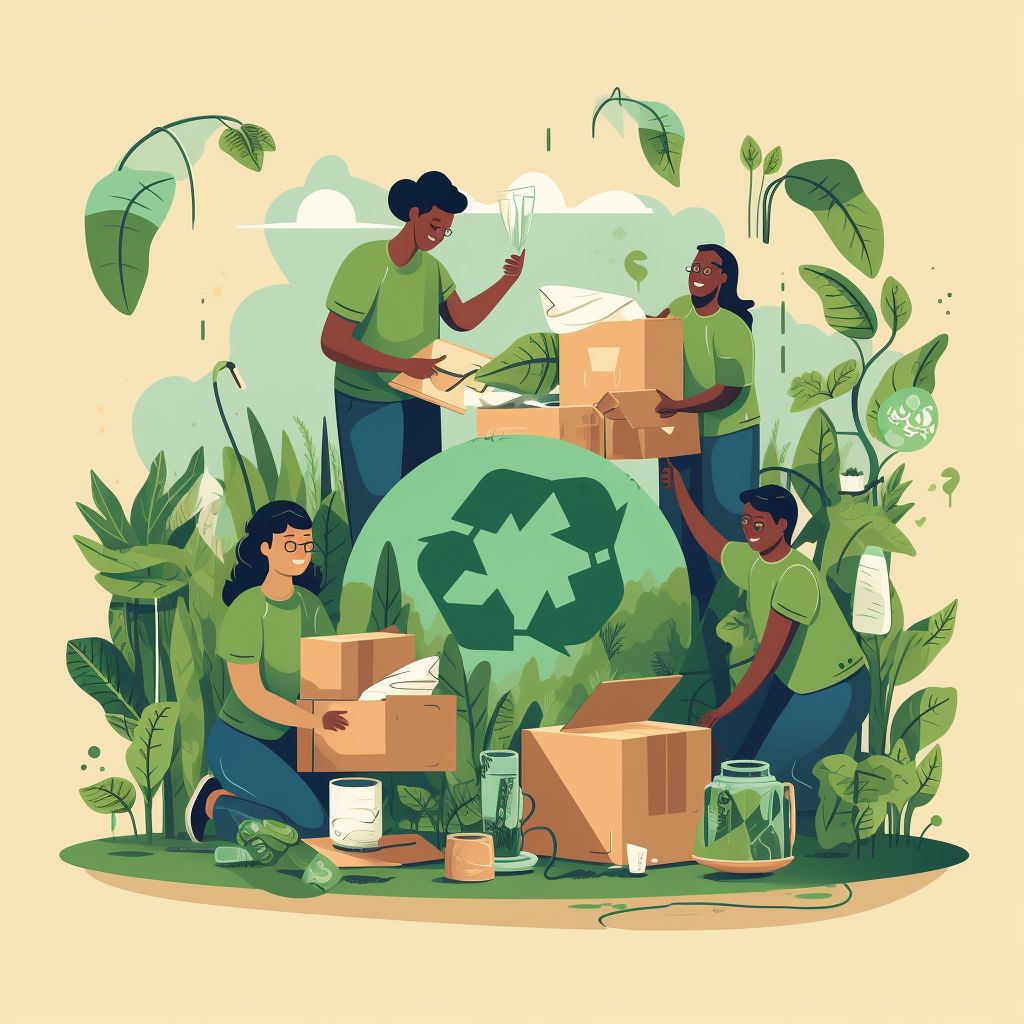The Growing Importance of Reverse Logistics
Reverse logistics, a supply chain strategy that moves goods from the customer back to the vendor or manufacturer, has been gaining significant attention in recent years. As e-commerce grows exponentially, so does the need for effective and efficient reverse logistics. As a result, this sector has grown into a behemoth, estimated at a whopping $731 billion market.
In simple terms, reverse logistics involves managing the return of products, with the goal often being to resell, recycle, or dispose of returned items in an environmentally friendly manner. It poses a myriad of challenges, from managing transportation and warehousing of returned items to determining the fate of these products.
This increasingly vital component of business operations is not merely a reactive function but an opportunity to enhance customer service, reduce costs, and promote sustainability. One such company capitalizing on this opportunity is Eureciclo, a Brazilian startup focused on the intersection of reverse logistics and sustainability.
Eureciclo: A Pioneer in Sustainable Reverse Logistics
Eureciclo is revolutionizing reverse logistics with its unique approach centered on sustainability. The company has developed a platform that meticulously tracks the post-consumer packaging recycling chain. It ensures the volume of packaging introduced to the market is equivalent to the volume of packaging sent for recycling.
“Eureciclo’s mission is to engage businesses in the recycling process in a way that is transparent to the consumer”, says Eureciclo.
Companies that partner with Eureciclo receive a Eureciclo seal to imprint on their packaging. This signals to consumers that the company is dedicated to responsible recycling, fostering consumer trust and encouraging sustainable practices.
The Innovative Model of Recycling Credits
Eureciclo’s innovative approach to reverse logistics extends to its collaboration with landfills, private recycling companies, and waste collectors. It has pioneered a model based on recycling credits, effectively turning recycling invoices into bonds.
Packaging manufacturers can purchase these bonds, thereby ensuring they comply with Brazil’s National Solid Waste Policy. This model incentivizes recycling and ensures a level of accountability among manufacturers regarding their packaging waste.
Investment in Sustainability: Eureciclo’s Latest Funding Round
Recognizing the potential of Eureciclo’s innovative business model, Ória Capital led a series B funding round that injected R$100 million (around €18.7 million) into the company. This funding will fuel the expansion of Eureciclo’s network of operators in the recycling chain.
Moreover, it will enable the growth of Brazil’s recycling chain capacity by structuring cooperatives and mechanizing sorting centers. This investment underscores the recognition of the role of reverse logistics in driving sustainability.
Implications and Innovations in Reverse Logistics
The work of companies like Eureciclo paints a promising picture for the future of reverse logistics. By intertwining sustainability with efficient return management, these companies are not only contributing to environmental protection but also enhancing their customer service and building stronger, more responsible brands.
In a broader context, logistics is instrumental in the race to reach net-zero emissions. This is evident in the multitude of innovations surfacing in the field. From smart packaging systems that reduce waste to companies helping brands eliminate single-use packaging from their supply chains, the logistics sector is becoming increasingly intertwined with sustainability efforts.
In conclusion, by formalizing the recycling market in Brazil, Eureciclo is contributing to the improvement



